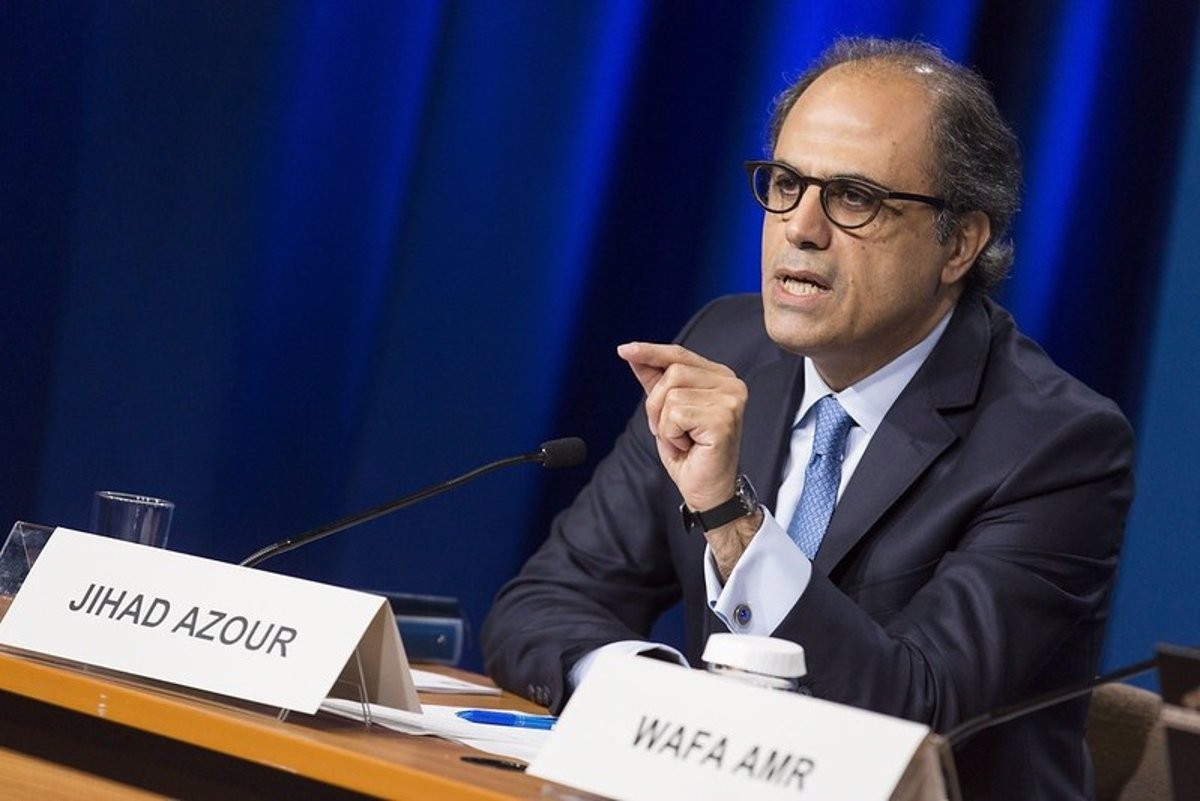On June 4, Lebanese lawmakers nominated International Monetary Fund (IMF) Regional Director Jihad Azour, also a former Lebanese Finance Minister, for the presidency, which has been vacant for the past seven months due to political instability.
 |
| IMF Regional Director Jihad Azour, who served as Lebanon's Finance Minister from 2005-2008, has been nominated to be the Middle Eastern nation's president. (Source: Europa Press) |
Former President Michel Aoun's term ended in October 2022. Since then, Lebanon's parliament has held 11 votes to elect a new president, but bitter divisions have prevented any candidate from gaining enough support to succeed Mr. Aoun.
Lebanon is currently run by a provisional government with limited powers.
On June 4, MP Mark Daou read a statement on behalf of a group of 32 lawmakers, supporting Mr. Azour to become President of Lebanon.
The lawmakers had previously backed another candidate, MP Michel Moawad, but he withdrew in favour of Mr Azour, who is currently the IMF's director for the Middle East and Central Asia.
Mr. Azour served as Lebanon's Finance Minister from 2005 to 2008. He has yet to officially declare his candidacy for president.
The international community has called on Lebanon to soon elect a new president, a step that would allow the country, mired in a severe economic crisis since 2019, to implement the reforms needed to receive loans from the IMF.
By convention, the presidency of Lebanon is reserved for a Maronite Christian, the prime minister's post is reserved for a Sunni Muslim, and the speaker of parliament's position is reserved for a Shiite Muslim.
It is unclear when Lebanese Parliament Speaker Nabih Berri will call a new vote to elect a president, as the country's economy continues to sink deeper into crisis.
Lebanon's annual inflation rate hit 269% in April 2023 as the Lebanese pound continued to depreciate against the US dollar. This was the 34th consecutive month of hyperinflation in Lebanon.
The World Bank (WB) said that Lebanon's economy contracted by about 58% in the 2019-2021 period, with its Gross Domestic Product (GDP) falling from about $52 billion in 2019 to $21.8 billion in 2021, the largest decline among 193 countries.
Lebanon's real GDP is expected to contract by 2.6% in 2022 and is expected to contract by 0.5% this year, according to World Bank estimates.
Source


































































































Comment (0)